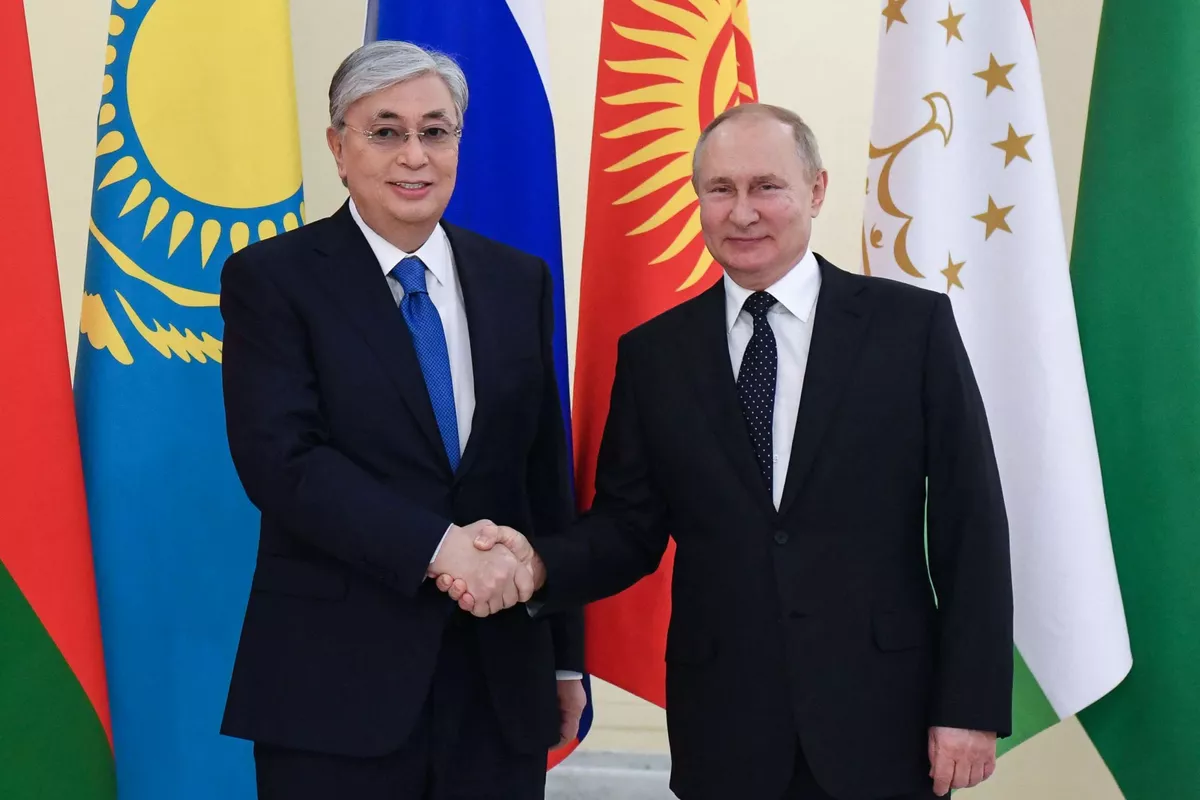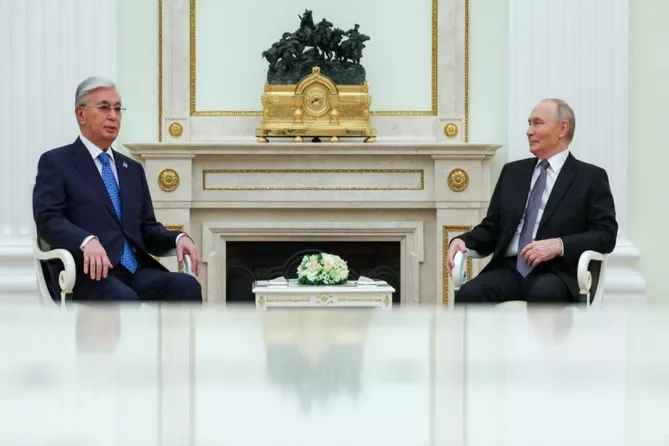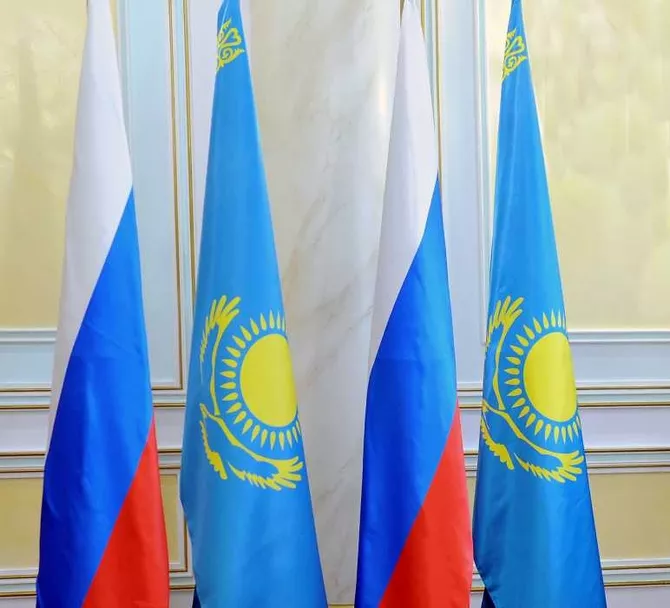
photo: ABC News
On November 12, 2025, Presidents Vladimir Putin and Kassym-Jomart Tokayev signed a declaration at the Kremlin elevating interstate relations between Russia and Kazakhstan to the level of comprehensive strategic partnership and alliance. Notably, this event took place almost immediately after the Kazakh leader returned from the United States, where the leaders of the five Central Asian republics had met at the White House with President Donald Trump.
Apparently, the visit to Washington did not meet the expectations of the Kazakh president, who realized that the U.S. is far away while Russia is nearby. Moreover, the American leader promised little and mostly requested investments in his own economy.
Recent events have also shown that Washington is not prepared to protect anyone from potential external threats. The era when Americans spent dollars on costly wars and acquiring new allies is over.

photo: APA
The decision to sign an alliance agreement was also influenced by concerns over China’s increasingly active policies. As Russian President Putin noted in his speech, “Kazakhstan and Russia are closest partners, friends, and reliable allies to each other.” He pointed out that in 2024, mutual trade turnover exceeded $27 billion, with the same amount in investments. An important achievement, he emphasized, was that Russia and Kazakhstan have almost completely transitioned to settlements in their national currencies.
In his response, President Tokayev stressed that “strategic partnership and allied relations between our states are not just a figure of speech or political courtesy, but the essence of our cooperation.” On the same day, the presidents signed the Declaration on Elevating Russia-Kazakhstan Relations to the Level of Comprehensive Strategic Partnership and Alliance.
Tokayev particularly highlighted cooperation with Moscow in the field of nuclear energy. “This is truly an important event, a breakthrough project. It concerns not only the construction of the plant itself but also the creation of a new sphere of expertise.”
He also noted that trade turnover between the countries is approaching $30 billion, and there are 1,703 joint projects with investments exceeding $50 billion. The declaration gives special attention to forming a reliable architecture of equal and indivisible security on the Eurasian continent. A key role in this is assigned to the Collective Security Treaty Organization (CSTO), the Commonwealth of Independent States (CIS), the Shanghai Cooperation Organization (SCO), and the Conference on Interaction and Confidence-Building Measures in Asia (CICA).
In the signed declaration, “the Parties confirmed the key role of the CSTO in maintaining regional stability. Noting the growing international authority of the Eurasian Economic Union, the Parties expressed their intention to continue developing common markets in accordance with the Treaty on the Eurasian Economic Union of May 29, 2014, and to jointly address the tasks of enhancing the competitiveness of national economies.” The CIS is considered an important platform for broad cooperation.
Given the world’s longest continuous land border between the Russian Federation and the Republic of Kazakhstan, the Parties intend to use interregional and cross-border cooperation as a unique tool for strengthening interstate relations.

photo: Eurasianet
An important part of the signed document is the intention to “strengthen financial cooperation, including expanding the use of national currencies in mutual settlements.” The Parties confirmed that one of the key areas of cooperation is the creation of a unified Eurasian transport and logistics framework, which will strengthen regional connectivity and diversify cargo flows through more efficient, reliable, and safe supply chains. Special emphasis will be placed on increasing the capacity of the International North-South Transport Corridor and linking it with other transport routes in the region.
To strengthen transport connectivity between Russia and Kazakhstan, the Parties will continue cooperation on creating new and modernizing existing international transport corridors, particularly the “Western Europe - Western China” route. They will also interact within the framework of the “Trans-Altai Dialogue” initiative aimed at developing the potential of the Eurasian “Altai” region.
The declaration places special emphasis on strengthening shared historical memory. In the context of celebrating the 80th anniversary of Victory in the Great Patriotic War, the Parties will jointly study historical facts about the events of that time and the heroic contribution of the peoples of the USSR in saving the world from Nazism.
The document underscores the key role of the education system in forming an objective understanding of the shared past among future generations.
The Parties confirmed their commitment to further improving conditions for citizens of both countries on each other’s territories, noting the importance of constructive cooperation in the migration sphere. Welcoming the creation of the International Organization for the Russian Language, the Parties expressed support for its activities and called on all interested states to do the same.
Additionally, Kazakhstan supported the promotion of the Russian language as a means of interstate communication within the CIS. The Parties will continue close cooperation in education and workforce training and will gradually develop scientific dialogue.
Cultural and humanitarian ties are described as a unique asset that will continue to grow based on respect for the cultural diversity of the modern world. On this foundation, dialogue will be actively encouraged to deepen understanding of the past, traditions, and culture of the two fraternal peoples, promoting mutual enrichment based on shared spiritual and moral values, the civilizational unity of Slavs and Turks, the brotherhood of “Ancient Rus and the Great Steppe,” and the union of Orthodoxy and traditional Islam.
Welcoming the creation of the International Organization for the Russian Language, the Parties again affirmed support for its activities and encouraged all interested states to join in this effort.
From this document, it is clear that Moscow has achieved significant success in strengthening its position in Kazakhstan, the largest republic in Central Asia. Beyond military and economic aspects, it has managed to reinforce the position of the Russian language, which had been gradually declining in all five former Asian republics of the USSR. Moreover, the recognition of the CSTO as a leading force in ensuring regional stability also benefits Russia, which, due to its military and economic potential, is the key player in this organization.
Thus, it can be concluded that the struggle for Central Asia is entering a new phase. It seems that the waves of change in the West are slowly moving eastward.
Share on social media